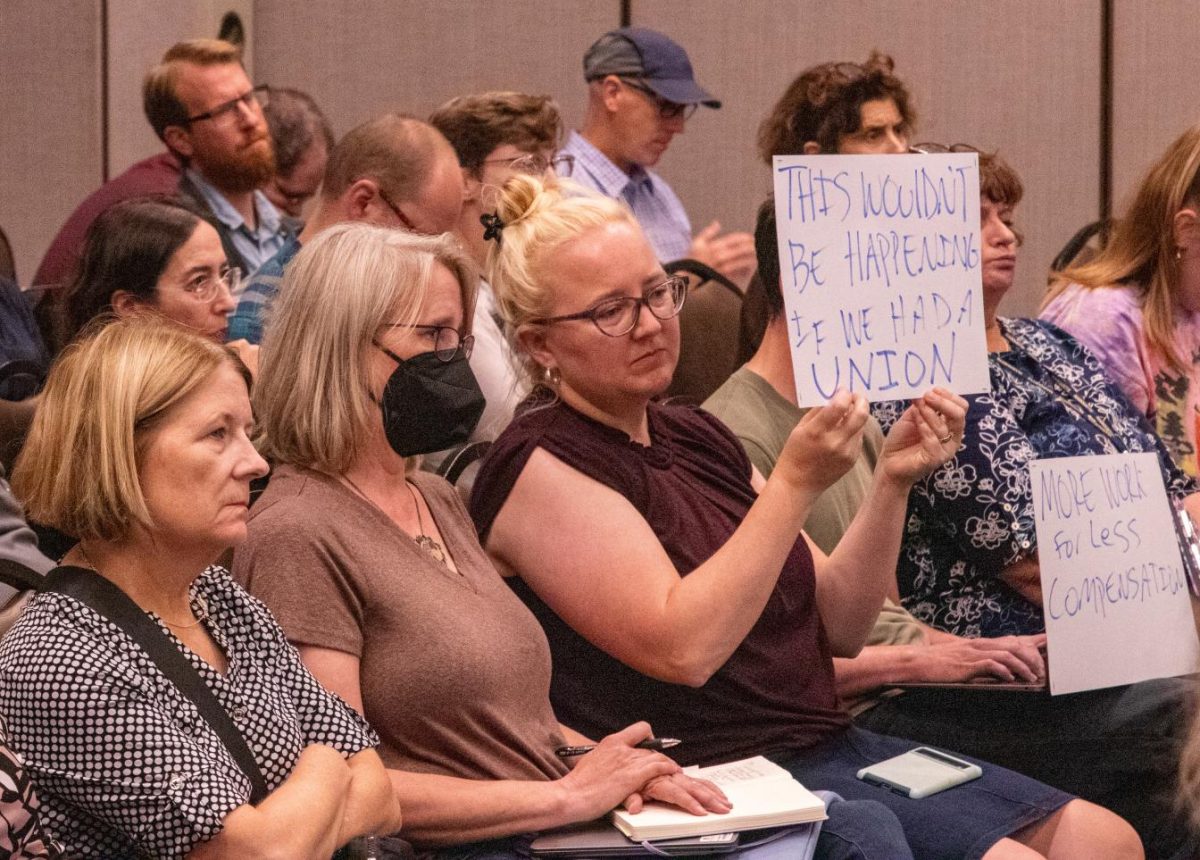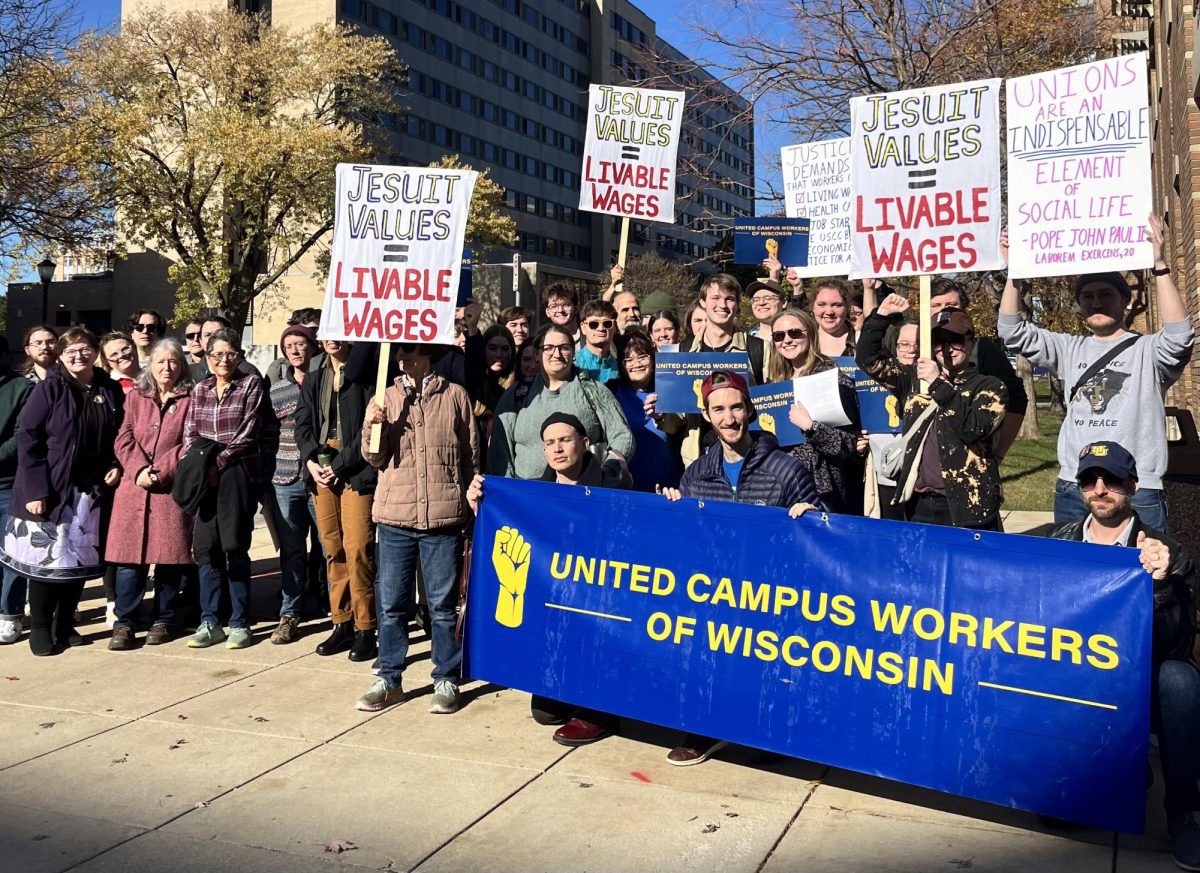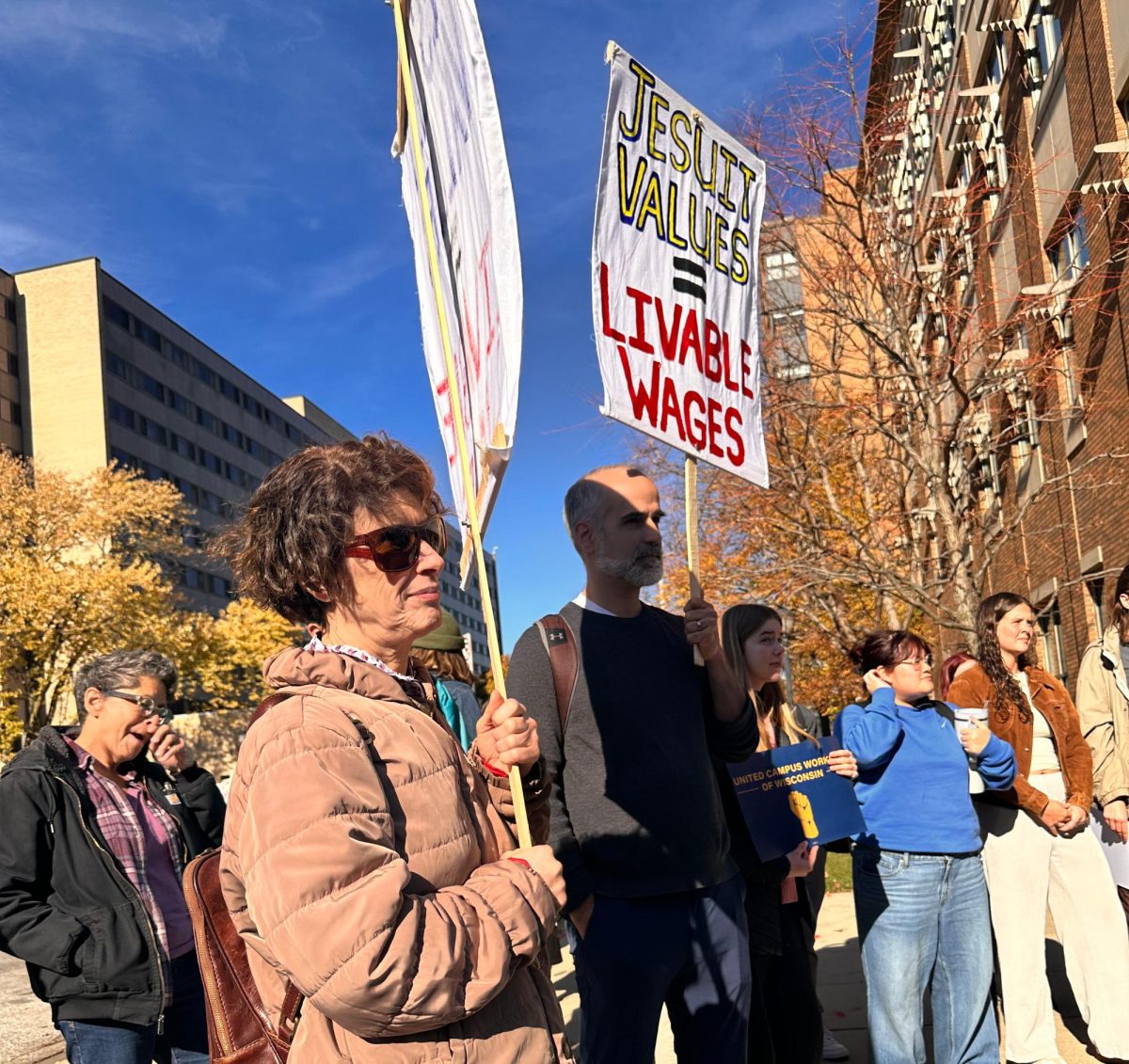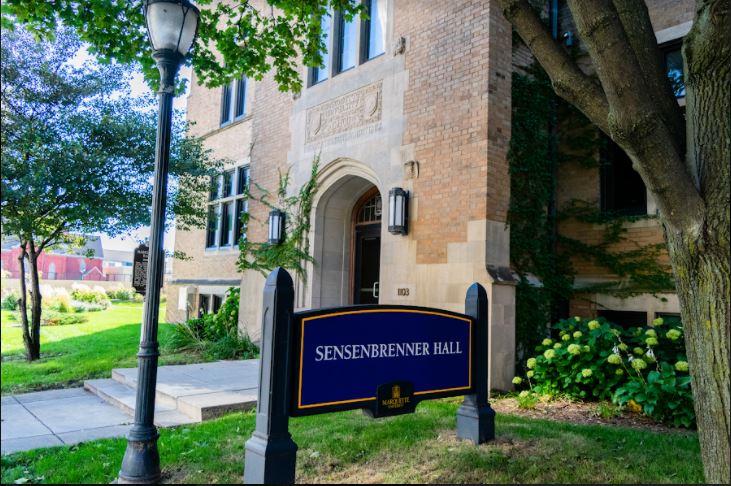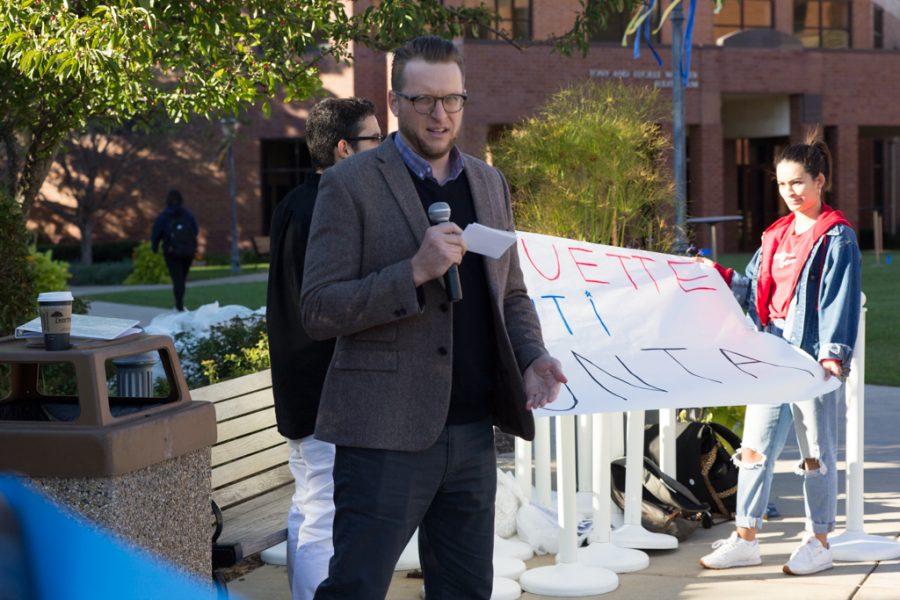The Marquette faculty’s attempts to unionize proved unsuccessful after Marquette posted a decision in Marquette Today saying that they have invoked their legal right for a religious exemption from Nation Labor Relations Board oversight. This decision, however, has not stopped the movement from pursuing their goals.
Marquette faculty have previously attempted to unionize, and now their most recent efforts have once again fallen short. In 2019, non-tenure track faculty and graduate workers attempted to unionize.
Sam Harshner, a professor in the political science and history programs, voiced his concerns faced by being part of the non-tenure track faculty.
“My biggest issue is primarily the security of my job. As a non-tenure track faculty member I realized I am at the whim of my employer, the whim of circumstances, and no matter how well I do my job, how hard I work, that matters very little in terms of my ability to keep my job,” Harshner said.
Ralph Weber, vice president and general counsel who leads the Office of General Counsel and Corporate Engagement, explained Marquette’s reasoning for taking the non-unionized approach to handling faculty concerns.
He specifically mentioned the Marquette task force and its benefits for faculty.
“We have five years of a proof point that this collaborative direct working relationship with faculty works best at Marquette, and that’s an important consideration in how we proceed,” Weber said.
Weber emphasized his goal of working directly with faculty instead of involving a third party, a union.
“The university would work directly with participating faculty to address their primary concerns,” Weber said.
Weber placed an importance on collaboration, saying that it is what has worked well in the past, and will continue to work well.
Harshner said he acknowledges the work done by the task force, but for him, it’s not enough. His concerns, besides job security, involve how non-union conditions will affect students.
He came back to the phrase “Our working conditions are your learning conditions” as a focal point of how the union attempt will impact the classroom.
“Our vulnerability creates all sorts of tensions that affect [students],” Harsner said.
Gabriel Marotto, a sophomore in the College of Arts & Sciences, has been involved with the faculty throughout this process. He shared a similar view to Harshner that the union would improve the quality of teaching.
“We deserve to get our money’s worth, and that involves teachers who are here and present for us, not focused on administration,” Marotto said.
Marotto said that collectively bargaining for better contracts is something these faculty members found worth pursuing.
Marquette’s status as a Catholic, Jesuit institution allows for exceptions when it comes to what rules they have to follow from the National Labor Relations Board. Weber said that the religious exemption and the ability for universities to make these decisions are appropriate and well established within the law.
“A group of faculty and graduate workers are coming together to agitate for better working conditions for some of the most vulnerable employees at Marquette,” Harshner said.
This story was written by Ruby Mulvaney. She can be reached at ruby.mulvaney@marquette.edu.


